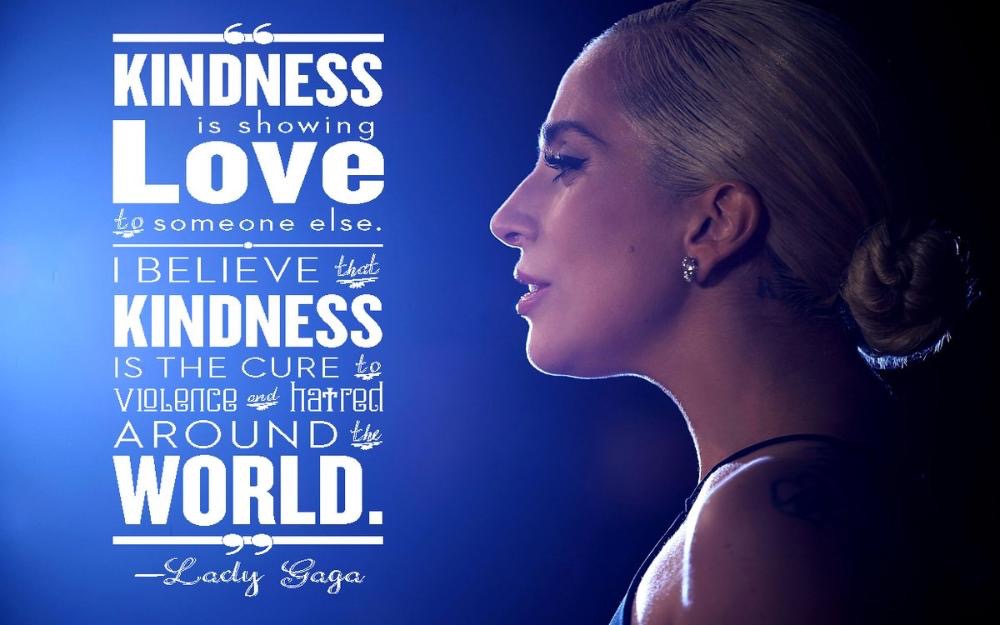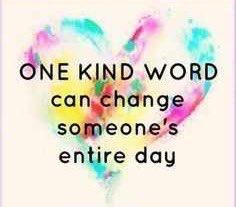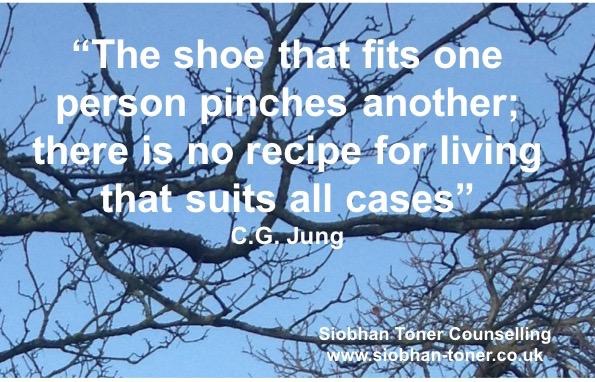What gets in the way of you being kind?


Counselling in London or online
Siobhan Toner offering individual one-to-one therapy in London or online
What gets in the way of you being kind?

I’ve written before about privilege and how important it is to recognise what privilege each of us have. How often do we really listen to those who don’t have the same privilege? As a white woman I have privilege that woman of colour don’t. I have never had to change my name or loose my language to fit into a society that is dominated by white ideals.
This article moved me a great deal as it is very clear how far we have to go.
The impact of receiving kindness is huge. When did you last experience it?

This article has some interesting points on social anxiety. I’m particularly pleased to see mention of Acceptance and Commitment Therapy (ACT) as I recently underwent some training on this.
Even though I am a person centred counsellor and ACT is a variant of CBT I found some elements of the training really useful.
Firstly, as the article say “The fundamental premise of ACT, then, is that you don’t try to squash your feelings but are able to notice and accept them while committing yourself to a pathway toward change.” Acceptance of ones feelings is very compatible with the Person Centred Approach (PCA). The more aware we are of them the more we can accept them and ACT has a strong element of mindfulness and self-awareness.
The other part of the training I had that I found very useful was to focus on what our values are. For each of us as individuals, we have the values we are expected to have but don’t always focus on what is truly most important to us. For an individual with social anxiety, they may realise that it isn’t interfering in what they hold most dear, only with what they think they “should” hold most dear.
Noticing our true feelings and accepting them can be hard, yet it can also be liberating if we can avoid the “should’s” that we tend to carry with us.
How often do you compare yourself to others? How helpful do you find it?

Do you know how to support bereaved parents of adult children?
Its a type of bereavement that doesn’t get as much written about it as when the deceased are children or babies yet the parents have still lost their child, whatever age they are.
For the surviving parent or parents, like with any bereavement time changes the way grief presents but it doesn’t go away. Whether it is six months, a year or ten years on their lives have changed irrevocably.
One of the most painful things can be how wiped out of history their child is; this can happen when people around them find it too difficult to talk about the dead person. So what happens is they avoid the subject and the parents are left alone with their grief.
It can also happen when people around them are making assumptions about the level of their grief; just because the parent is functioning and getting on with their life it doesn’t mean they are not still in pain. Mothers Day, the child birthday, the parents birthday, Christmas or other significant dates will be particularly difficult.
The parents may also have taken on a new role as primary caregiver to their grandchildren and be dealing with the many challenges this can bring.
Sometimes the simplest things can be really effective, a handwritten note saying you are thinking of them, showing them a photo you have found of their child, acknowledging their loss, asking how they are and being prepared to listen if they want to talk or to accept if they don’t.
The guideline is the same as when the bereavement first happens, even if some time has past never assume, just be there.
t’s been a beautiful sunny day here in London and I have noticed how much it has lifted my mood.
The sky is clear and blue; the temperature is mild but with a gentle breeze running across my skin and keeping me feeling cool and fresh.
I’m comparing it to a recent day which was wet but sticky and very very grey and I felt nasty, sweaty and with soaking clothes by 9am in the morning that I had to stay in all day.
The impact on how I am going about day due to the weather is huge. I feel less stressed, more at ease and taking the time to enjoy the sunshine and the world around me.
The other day I just had my head down and tried to avoid the environment as much as possible.
How much do you notice the weather and what impact does it have on your moods?
Do you give yourself the time to revel in the good days like I am today? Reflecting on it as I write I know I don’t do that very often, but doing it today has given me a new appreciation and determination to make more effort going forward.
I know I have a tendency to focus on the doom and gloom of life instead of the moments of joy. Today I’m celebrating the weather and feeling incredibly mellow and relaxed.
Bereavement is so hard to deal with, but this quote really struck me.

This is a great video explaining attachment theory and the sort of issues that can come from childhood.
Its useful for adults, both as parents but also as part of our own self reflection. If we can understand our own attachment styles and why they were formed it can help us explore the issues we have in the present.
Unfortunately a few acts of extremist violence have taken place recently. I have been thinking about the response to those events in the general public. The sort of comments I read on social media and how whole communities are being tarred by the behaviour of the few.
However I can’t help but also think about the other acts of violence that occur on a daily basis and don’t get attention. Where is the outrage for those victims?
I am talking about domestic violence, perpetrated most often (but not exclusively) by men.
How many people share posts on Facebook condemning this and calling for their community to do more to stop it?
According to this article during the 6 years to the end of 2016, in only England and Wales, more than 900 women were murdered. That is 150 victim per yearin these two countries alone. How high is the number across the world?
On this website I found these truly horrific estimates for that
An analysis of a United Nations global crime study has revealed that an estimated 43,600 women are killed every year by an intimate partner or family member. This is the equivalent to five women every hour or one woman every 12 minutes.
And this is just the estimated death toll. What about those that aren’t killed. How many are being physically and emotionally abused on a daily basis? How many children are witness to it and also being traumatised.
Compared these numbers with those killed in terrorist incidents in the UK and in Europe in this article.
Over the last 10 years there have been 1.4 deaths per year in the UK due to terrorism
Yet there have been 150 women per year killed in England and Wales alone by current or former partners.
How do you feel about these figures? Are you shocked, or all too familiar through personal experience of how widespread domestic violence is? Please get in touch if you need support for your own situation.